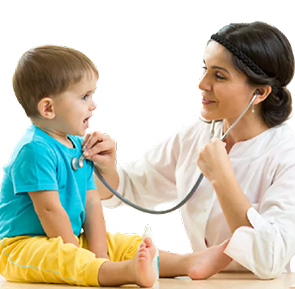Seasonal Allergies
5 Stars Rated Seasonal Allergies For Children




Seasonal Allergies in Children
Seasonal allergies—also known as hay fever or allergic rhinitis—can make certain times of the year uncomfortable for children. At our pediatric clinic, we help families manage seasonal allergies with personalized care that relieves symptoms and improves quality of life, so your child can enjoy each season to the fullest.
What Are Seasonal Allergies?
Seasonal allergies occur when a child’s immune system overreacts to allergens such as pollen, mold spores, or grass. These allergens are most common during specific seasons, especially spring, summer, and fall.
Common Triggers Include:
- Tree pollen (early spring)
- Grass pollen (late spring to early summer)
- Weed pollen (late summer to fall)
- Outdoor mold spores (especially in damp or decaying leaves)
Symptoms of Seasonal Allergies in Children
- Sneezing or runny nose
- Nasal congestion
- Itchy or watery eyes
- Coughing or throat irritation
- Dark circles under the eyes (“allergic shiners”)
- Fatigue or trouble concentrating
These symptoms can interfere with sleep, school performance, and outdoor activities if left unmanaged.
Our Approach to Allergy Management
We offer a complete evaluation and treatment plan tailored to your child’s unique needs. Our goal is to reduce symptoms, prevent flare-ups, and help your child stay active and happy throughout allergy season.
Allergy Evaluation
• Seasonal pattern assessment
• Physical exam of nose, eyes, and throat
• Allergy testing referrals (if necessary)
Personalized Treatment Plan
• Eye drops for itchiness or redness
• Guidance on the proper use of medications
• Non-drowsy options for daytime relief
Environmental Control Tips
• Using air purifiers and HEPA filters
• Showering and changing clothes after outdoor play
• Monitoring local pollen counts
Long-Term Management
• Discussion of immunotherapy (allergy shots) when appropriate
• Routine follow-ups during allergy seasons
When to See a Pediatric Specialist
If your child experiences persistent allergy symptoms that affect their daily activities or sleep, or if over-the-counter medications aren’t working, it’s time to see a pediatric professional.
Now Offering Telemedicine Appointments
Telephone and Online Health Care for Your Kids and Family













